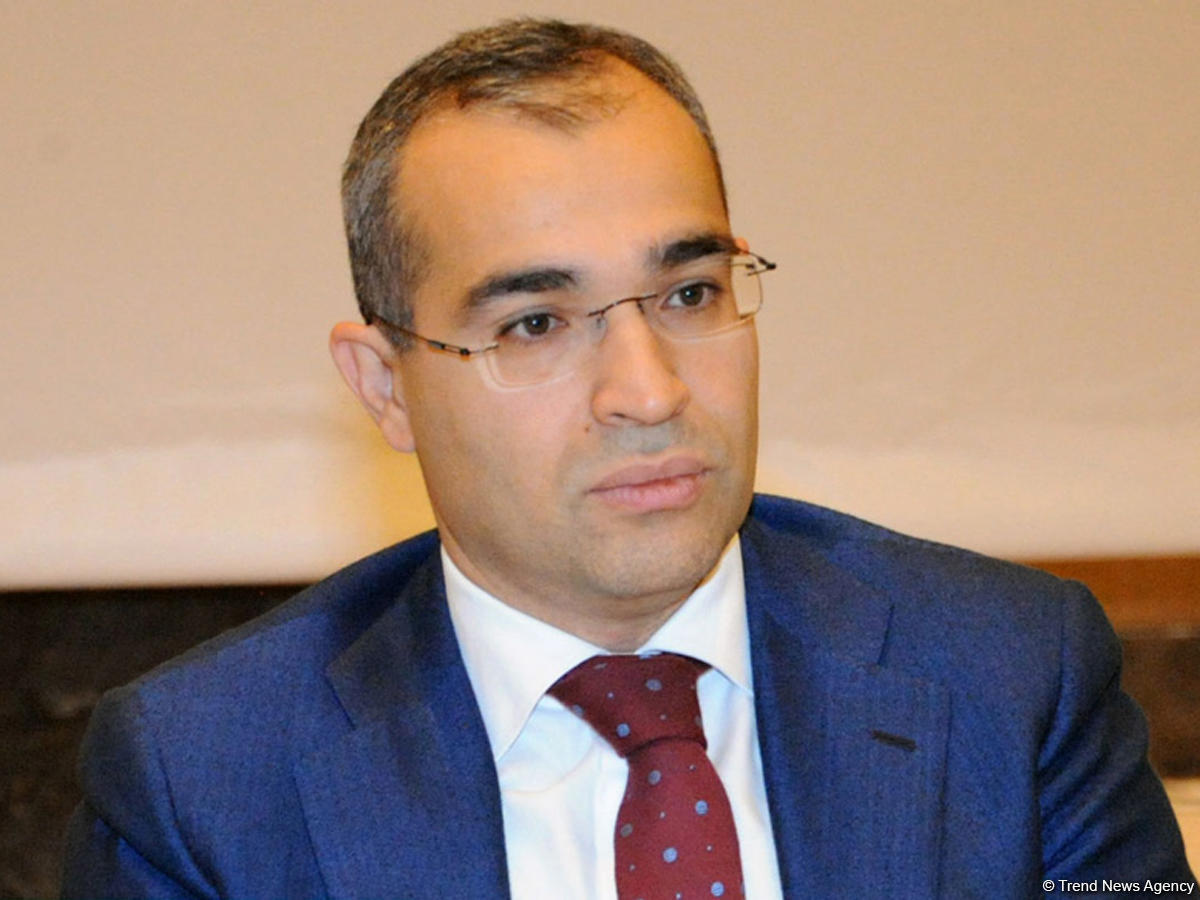Minister: Changes in tax legislation to cover five areas in 2019

By Narmina Mammadova
The meeting of the Parliamentary Committee on Economic Policy, Industry and Entrepreneurship was held on November 20.The draft amendment to tax legislation was discussed there.
The changes in the Azerbaijani Tax Code included into the budget package of 2019 will cover five important areas, Minister of Taxes Mikayil Jabbarov said at this meeting.
He noted that the first direction is to support entrepreneurship, which is important for maintaining economic development and extending the rights of taxpayers.
“The second direction will be the reduction of the scales of the “shadow economy” and ensuring of the transparency of the economy,” he said, adding that all participants in economic activity must comply with the requirements of the laws in accordance with the principle of equal rights," Jabbarov noted.
The elimination of this problem, he said, contributes to the prevention of inequality in this area.
“We believe that ensuring the transparency of the economy is not limited to replenishing the state budget revenues. In general, identifying economic actors and their development can also ensure the country's competitiveness in the medium and long term,” the minister said.
Jabbarov called the expansion of the taxable base as the third direction, while the use of tax incentives to increase economic efficiency as the fourth direction.
Tax concessions are applied in many spheres in the country. If the country applies tax concessions, rejecting some income, it expects economic efficiency,” he said.
The modernization of tax administration will be the fifth direction.
Speaking about the changes proposed in the Tax Code, the minister stressed the reduction in interest rates of existing taxes levied on the salaries of citizens working in the non-oil and private sectors.
A 100 percent income tax relief is offered for citizens whose salary is 8,000 manats, the income tax for individuals whose income over 8,000 manats will be set at 14 percent.
Currently, there are two types of payments related to salaries in the country, namely, income tax and deductions carried out by individuals for compulsory social insurance.
"It is proposed to conduct a unified administration of these payments. And this, in turn, means a significant simplification of this process for employers. By carrying out this reform, the state loses a certain part of its income. However, as a result, a decrease in the volume of the "shadow economy" is expected, the elimination of informal employment, revival and the acceleration of economic activity, especially in the private sector of the non-oil sector. The citizens' rights are expected to be fully guaranteed. This is a very significant, fundamental change and will actually cover every employee working in the non-oil, non-state sector,” said the minister.
To ensure the economic attractiveness, these benefits will be long-term for a period of seven years.
Currently, the income tax rate is 14 percent from income of up to 2,500 manats per month. Above this amount, the tax rate is 25 percent.
According to the amendments, the amount not subject to income tax increases from 173 manats to 200 manats. As opposed to the previous amendment, this will apply to all sectors, including the oil and gas sector.
If the employee’s monthly salary is 200 manats, the structure of social insurance contributions will remain at the current level: the employee pays three percent of the salary, while the employer pays 22 percent.
If the employee’s salary exceeds 200 manats, another deduction principle is proposed to be applied. The employee pays six manats and 10 percent of the amount exceeding 200 manats, while the employer pays 44 manats and 15 percent of the amount exceeding 200 manats.
These changes also affect those working in the private sector and not engaged in the oil and gas sector. At the same time, the Ministry of Taxes will take over the control over social security and unemployment insurance payments.
The term of tax benefits issued in agriculture is proposed to be extended by five years from 2019.
Following the discussion, the draft amendments to the Tax Code were recommended for consideration during the plenary session of the Azerbaijani parliament.
In the draft budget for 2019, tax payments to the country's budget are expected to amount to 7.316 billion manats, which is 64 million manats, or 0.9 percent less compared to the forecast for 2018.
The Tax Code of Azerbaijan Republic was approved on July 11, 2000, and consists of two parts. The General Part indicates the rights and responsibilities of taxpayers, tax agents and tax authorities, procedures of tax registration, tax control and audit. The second part, also referred to as Special Section, defines specific taxes and their bases, rates, payment schedules and procedures. There are separate taxation procedures for Production Sharing Agreements (PSAs).
---
Follow us on Twitter @AzerNewsAz
Here we are to serve you with news right now. It does not cost much, but worth your attention.
Choose to support open, independent, quality journalism and subscribe on a monthly basis.
By subscribing to our online newspaper, you can have full digital access to all news, analysis, and much more.
You can also follow AzerNEWS on Twitter @AzerNewsAz or Facebook @AzerNewsNewspaper
Thank you!
